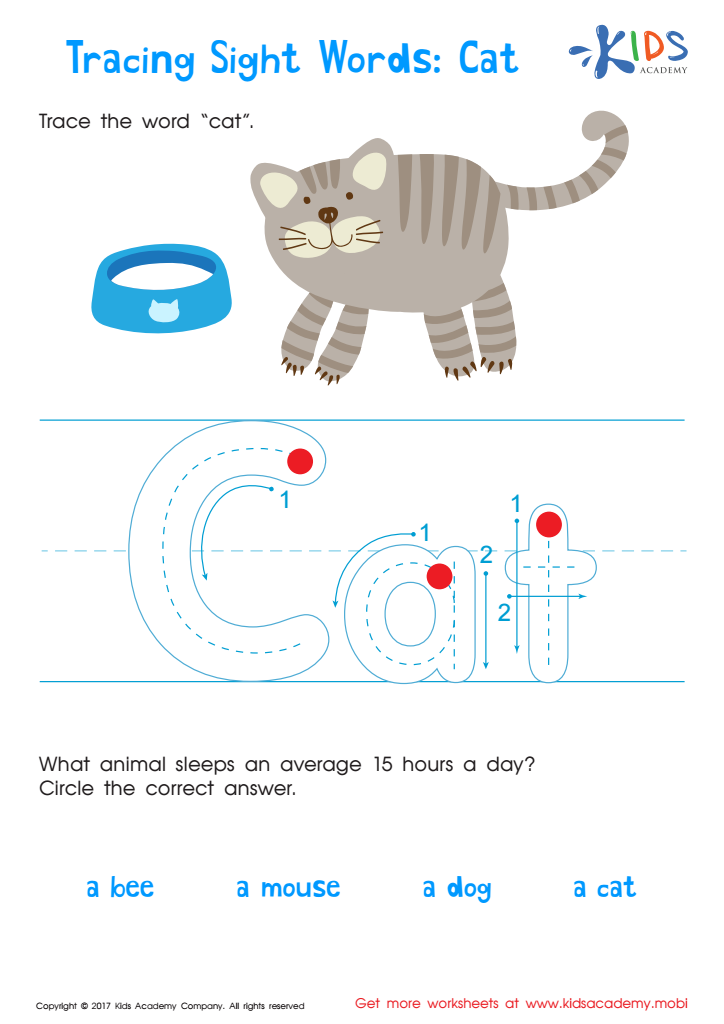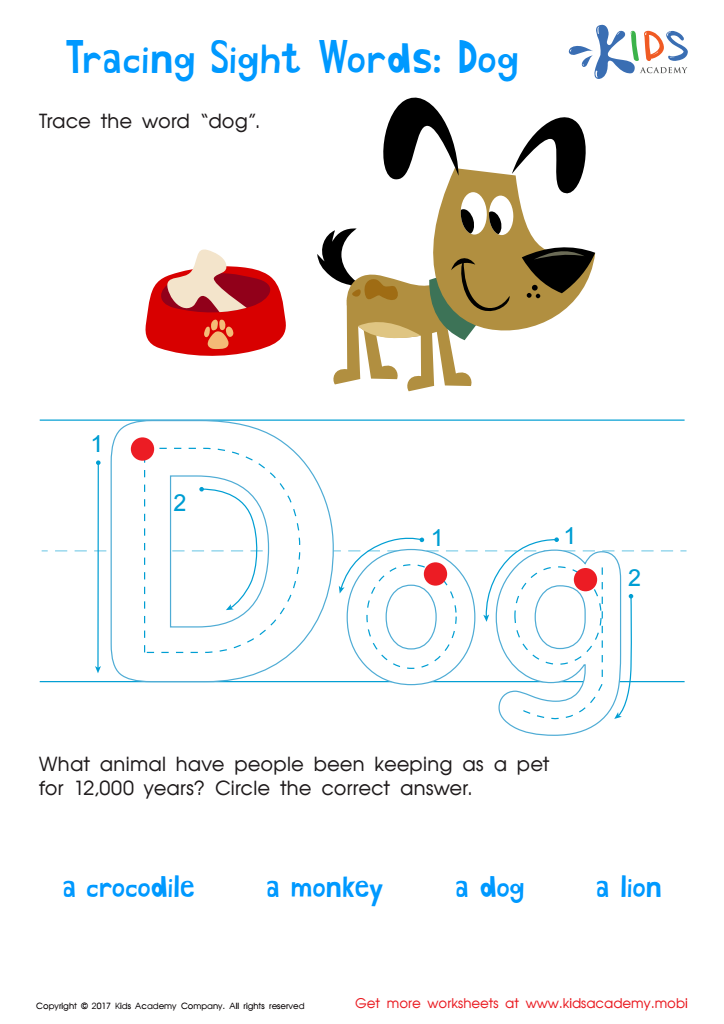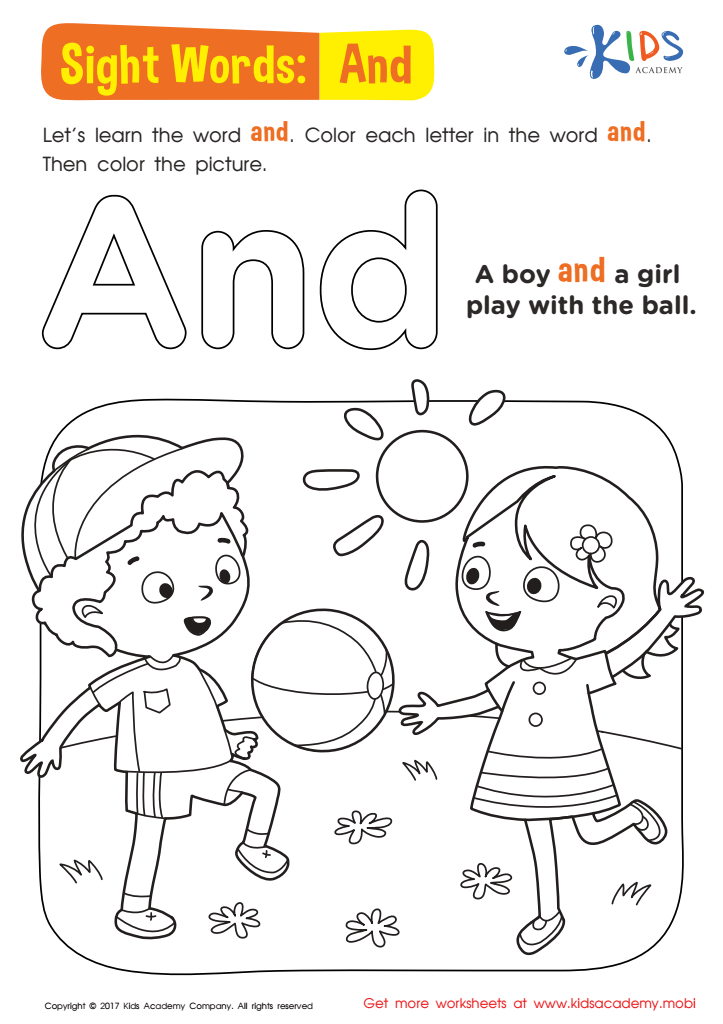Sight word recognition Phonics Worksheets for Ages 3-4
3 filtered results
-
From - To
Enhance early literacy skills with our Sight Word Recognition Phonics Worksheets for ages 3-4! These engaging and colorful worksheets are designed to help young learners identify and recognize sight words, a crucial step in their reading journey. Each activity focuses on fun, interactive methods that make learning enjoyable, supporting phonics understanding and vocabulary development. With a variety of exercises, children will build confidence in their reading abilities while improving concentration and focus. Perfect for home or classroom use, our worksheets provide essential practice that lays the foundation for a lifelong love of reading. Start your child's learning adventure today!


Cat Printable Sight Words Worksheet


Dog Worksheet Sight Words Worksheet


And Worksheet Sight Words Worksheet
Sight word recognition and phonics are foundational skills crucial for early literacy development in children aged 3-4. At this age, children are beginning to explore language and literacy activities, making it an ideal time to introduce these concepts. Sight word recognition helps children quickly identify common words, enabling them to read more fluently and with greater confidence. This familiarity with words leads to enhanced comprehension and a love for reading, which is essential for academic success.
Phonics, on the other hand, involves understanding the relationship between letters and sounds, which lays the groundwork for decoding unfamiliar words. Teaching phonics to young learners supports their ability to sound out words phonetically, fostering independence and critical thinking as they engage with texts.
Both sight word recognition and phonics promote early reading skills, which are not only vital for literacy but also for overall cognitive development. When parents and teachers prioritize these skills, they empower children to become confident readers, nurture their curiosity, and cultivate a lifelong love for learning. Early interventions in literacy can significantly impact a child's educational trajectory and set them up for success in school and beyond. Therefore, integrating these elements into daily learning routines ensures a strong foundation for future reading abilities.
 Assign to My Students
Assign to My Students















